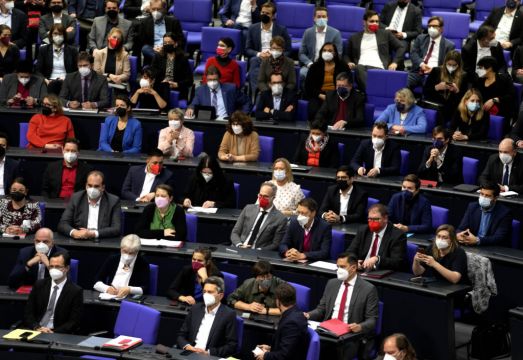German lawmakers have approved new measures to rein in record coronavirus infections after the head of the nation’s disease control agency warned the country could face a “really terrible Christmas”.
The measures passed in the Bundestag with votes from the centre-left Social Democrats, the Greens and the pro-business Free Democrats. The three parties are negotiating to form a new government.
The legislation includes requirements for employees to prove they are vaccinated, recovered from Covid-19 or have tested negative for the virus in order to access communal workplaces.
The measures still need to be approved by Germany’s upper house of parliament, the Bundesrat.

Outgoing Chancellor Angela Merkel’s centre-right Christian Democrats had wanted to extend existing rules that served as the basis for numerous national and state-wide restrictions.
Due to expire this month, the rules were criticised for marginalizing parliament despite its central role in the German political system.
The Robert Koch Institute, Germany’s disease control agency, said on Thursday that 65,371 newly confirmed cases had been reported in a single day, continuing the upward trend that experts have been warning about for weeks.
“We are currently heading towards a serious emergency,” said the agency’s director, Lothar Wieler. “We are going to have a really terrible Christmas if we don’t take counter-measures now.”

Mr Wieler said Germany needs to increase its vaccination rates to significantly above 75%, from 67.7% at present.
The eastern state of Saxony, which at 57.6% has the country’s lowest immunisation rate, is poised to impose a limited lockdown in response to soaring case numbers.
Governor Michael Kretschmer said the state government would decide on a “hard and clear wave breaker” on Friday lasting two to three weeks.
Official figures show Saxony had more than 761 newly confirmed cases per 100,000 inhabitants in the past week, the highest infection rate in Germany.
Mr Wieler has also called for the closure of clubs and bars, an end to large-scale events and access to many parts of public life to be limited to those with vaccine or recovery certificates.
He warned that hospitals across Germany are struggling to find beds for Covid-19 patients and those with other illnesses.







